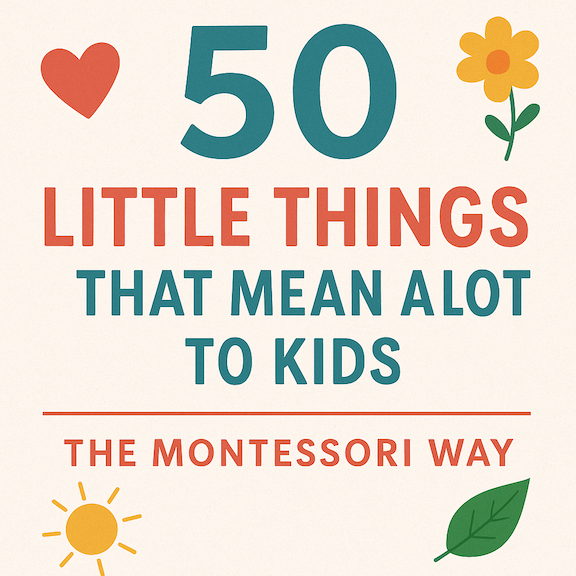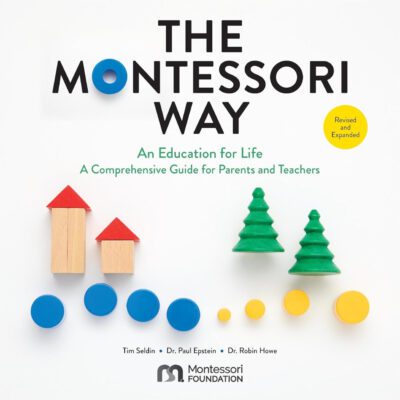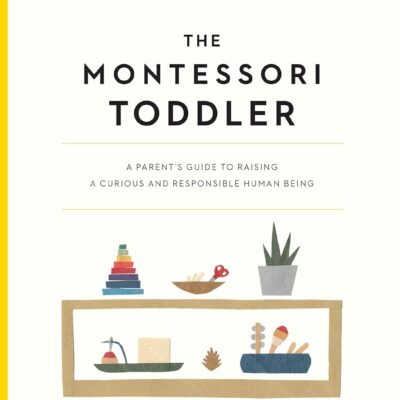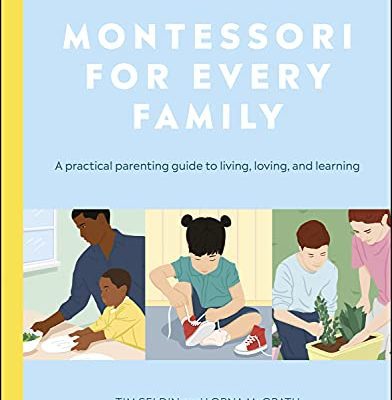
1907-2025 Welcome to the 119th Montessori School Year!
In Montessori education, every interaction is an opportunity to model respect, independence, and joy in learning. At home, it’s the little things—small, consistent gestures—that let your child know they are valued and loved.
Building Connection Through Everyday Gestures
Begin the day with a warm greeting – Make your first words and expressions calm and welcoming.
Make real eye contact – Get on their level and truly listen when they speak.
Leave a kind note – A short message in a lunchbox or by their work mat is a tangible reminder you care.
Acknowledge effort, not just results – Praise persistence and creative thinking.
Invite their opinion – Give them real choices and value their perspective.
Share an inside joke – Humor builds intimacy.
Tell stories from your own childhood – Connect through shared humanity.
Say “I love you” often – Make it a natural part of conversation.
Welcome their friends – Show respect for their social world.
Create small family rituals – Predictable traditions help children feel grounded.
Fostering Independence and Responsibility
Let them contribute to real work – Cooking, gardening, or folding laundry builds skills and pride.
Use their name with kindness – Your tone can invite cooperation.Sit quietly near them while they work – Show you value their concentration.
Encourage them to solve problems themselves – Offer guidance, not quick fixes.
Let them set up their own workspace – Ownership of space encourages order.
Give them age-appropriate tools – Child-sized brooms, pitchers, or rakes say, I trust you to help.
Teach them how to care for their belongings – Part of the Montessori respect for the environment.
Let them prepare their own snack – Builds confidence in daily life skills.
Encourage them to greet people politely – A grace and courtesy lesson in action.
Invite them to help plan a meal – Practical life meets family bonding.
Nurturing Emotional Security
Laugh together often – Joy builds resilience.
Tuck them in with care – A peaceful end to the day signals safety.
Keep your promises – Trust is built in small follow-throughs.
Learn about their passions – Follow the child into their interests.
Let them overhear you speak proudly of them – Authentic affirmation is powerful.
Offer hugs for no reason – Love without conditions.
Listen to their music or stories – Respect their tastes.
Ask about the best part of their day – Encourages reflection.
Say you’re proud—specifically – “I’m proud of how gently you treated the kitten.”
Remember details they’ve shared – Shows they matter to you.
Encouraging Curiosity and Wonder
Share moments of natural beauty – Rainbows, moonlight, birdsong.
Look things up together – Model how to find answers.
Invite them to teach you something – Reverses the roles and builds mastery.
Explore your neighborhood on foot – Observation is a Montessori core skill.
Visit new places together – Museums, libraries, gardens.
Include them in planning trips – Gives them a sense of agency.
Try new recipes side by side – Sensory learning at home.
Collect treasures from nature – Shells, leaves, pinecones for display.
Share your own wonder – “Look at those clouds! What do you see?”
Make time for open-ended play – Follow their lead in pretend or construction play.
Modeling Respect and Kindness
Apologize when you’re wrong – Teaches humility and repair.
Thank them sincerely – Gratitude works both ways.
Use polite language with them – Please and thank you aren’t just for adults.
Speak to them as you would to a respected adult – Montessori dignity at home.
Avoid interrupting their concentration – Respect their flow of work.
Ask permission before borrowing their things – Models respect for property.
Be patient when they’re learning – Mistakes are part of mastery.
Include them in family decisions that affect them – Builds ownership and trust.
Speak calmly even when you’re frustrated – Emotional regulation is learned through example.
Celebrate who they are today – Affirm their worth in this moment, not just their potential.








